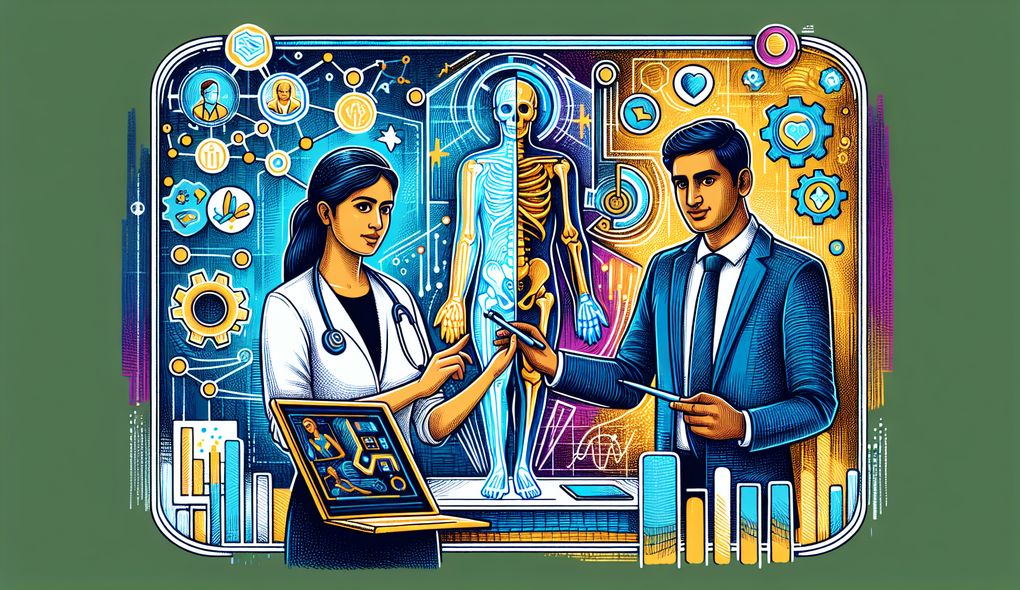Tell me about a time when you had to deal with a team member who was not performing well in a project. How did you handle the situation?
INTERMEDIATE LEVEL

Sample answer to the question:
In a previous project, I had a team member who was not performing up to expectations. I approached the situation by first having a one-on-one conversation with the team member to understand any challenges they were facing. I provided clear feedback on their performance and set specific expectations for improvement. Additionally, I offered support and resources to help them succeed. We agreed on a timeline for improvement and I scheduled regular check-ins to monitor progress. Through ongoing communication and coaching, the team member was able to improve their performance and successfully contribute to the project.
Here is a more solid answer:
In a previous project, I encountered a team member who was struggling to meet the project's performance expectations. To address the situation, I took a proactive approach by initiating a one-on-one meeting to understand their perspective and any challenges they were facing. Through active listening and open communication, I discovered that the team member was overwhelmed with their workload. I immediately took steps to help alleviate their burden by reassigning tasks and reallocating resources within the team. I also provided additional guidance and support, sharing best practices and offering additional training opportunities to help them improve their skills. I set clear expectations for their performance and collaborated with the team to establish a support network, ensuring that everyone understood the importance of helping each other succeed. By fostering a positive and cooperative environment, the entire team rallied around the struggling member, providing mentorship and support. Regular check-ins and progress tracking allowed me to provide ongoing feedback and guidance, while also recognizing and acknowledging their improvements. Ultimately, this approach led to a significant improvement in the team member's performance, and they were able to successfully contribute to the project's success.
Why is this a more solid answer?
The solid answer provides more specific details and examples to address the evaluation areas mentioned in the job description. It demonstrates leadership skills by taking a proactive approach to addressing the situation and actively supporting the struggling team member. The answer also showcases problem-solving skills by identifying the root cause of the team member's performance issues and implementing appropriate solutions. Additionally, it highlights strong interpersonal skills by fostering a collaborative and supportive environment within the team. The communication skills are demonstrated through open and honest conversations, setting clear expectations, and providing ongoing feedback. However, the answer could still benefit from further elaboration and providing more metrics or specific outcomes of the situation.
An example of a exceptional answer:
During a critical project, I faced a challenge with a team member who was consistently underperforming. Recognizing the urgency of the situation, I immediately scheduled a private meeting with the team member to discuss their performance concerns. Through a structured approach, I facilitated an open and honest conversation, allowing them to express any difficulties they were encountering. While maintaining a supportive and empathetic approach, I also emphasized the importance of meeting the project's objectives and the impact of their performance on the team's success. Together, we identified areas for improvement and I created an individualized development plan tailored to their needs. This plan included targeted training sessions, mentoring from senior team members, and close collaboration on specific tasks. Additionally, I implemented a system to track their progress and provide regular feedback. To ensure visibility and transparency, I organized weekly team meetings where each member shared their achievements and challenges, creating a positive environment that encouraged collaboration and collective problem-solving. Through continuous coaching and motivation, the team member started to show remarkable improvement, even exceeding expectations in some areas. Their growth not only positively impacted the project but also boosted their confidence and motivation. Ultimately, this experience highlighted the importance of recognizing individual strengths and weaknesses, and tailoring support strategies accordingly to unlock the team's full potential.
Why is this an exceptional answer?
The exceptional answer provides a comprehensive and detailed account of the candidate's approach to dealing with a team member who was not performing well. It demonstrates strong leadership skills by taking immediate action and scheduling a private meeting to address the issue. The answer also showcases exceptional problem-solving skills by creating an individualized development plan and implementing targeted training and mentoring. The candidate demonstrates exceptional interpersonal skills by fostering a positive and collaborative team environment that encourages problem-solving and collective support. The communication skills are demonstrated through open and honest conversations, emphasizing the project's objectives, and providing regular feedback. The exceptional answer goes above and beyond by highlighting the long-term impact on the team member's growth and motivation. It also emphasizes the importance of recognizing individual strengths and weaknesses and tailoring support strategies accordingly. The answer could still benefit from providing more specific metrics or outcomes to showcase the significant improvement achieved.
How to prepare for this question:
- Reflect on past experiences where you have dealt with team members who were not performing well. Identify the challenges you faced and the strategies you used to address the situation.
- Brush up on your knowledge of effective communication techniques, problem-solving methods, and conflict resolution strategies.
- Research and familiarize yourself with resources and support systems that can be utilized to help struggling team members improve their performance.
- Practice sharing specific examples of how you have successfully handled similar situations during interviews. Focus on highlighting how you were able to turn the situation around and achieve positive outcomes.
- Be prepared to discuss how you foster a positive and supportive team environment to encourage collaboration and problem-solving.
- Think about how you can measure and track improvements in the performance of team members to assess the effectiveness of your interventions.
What are interviewers evaluating with this question?
- Leadership
- Problem-solving
- Interpersonal skills
- Communication skills

